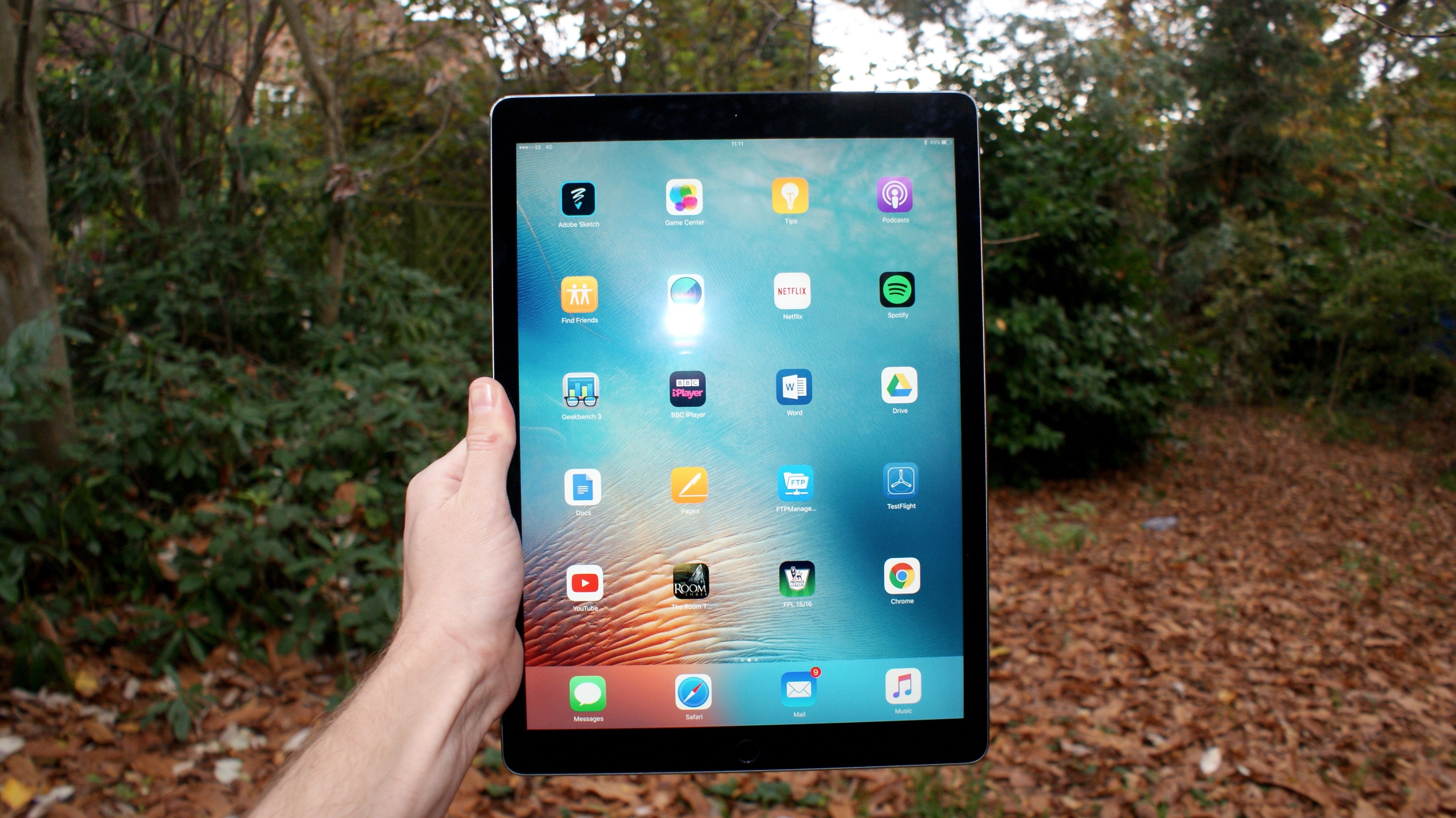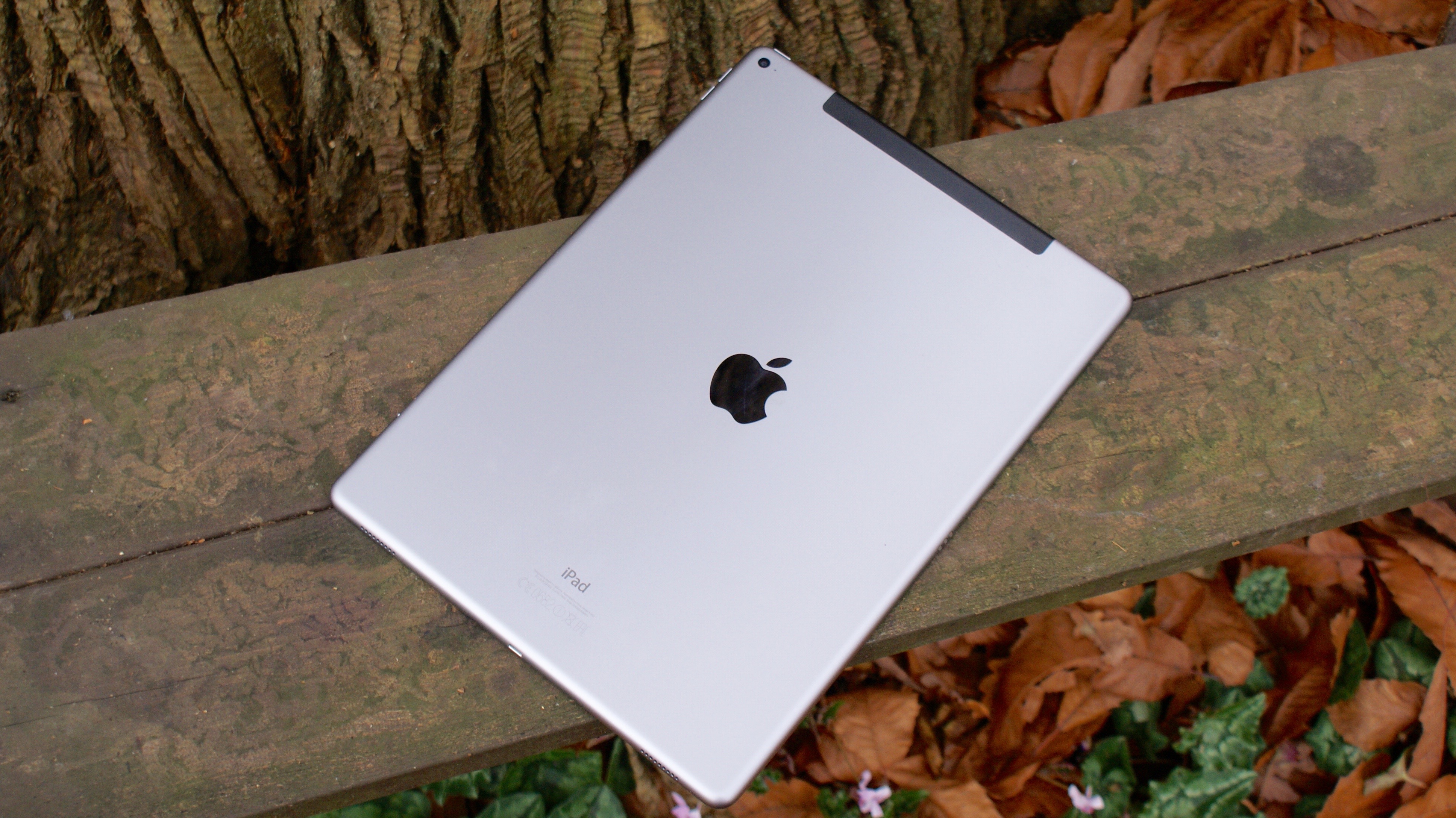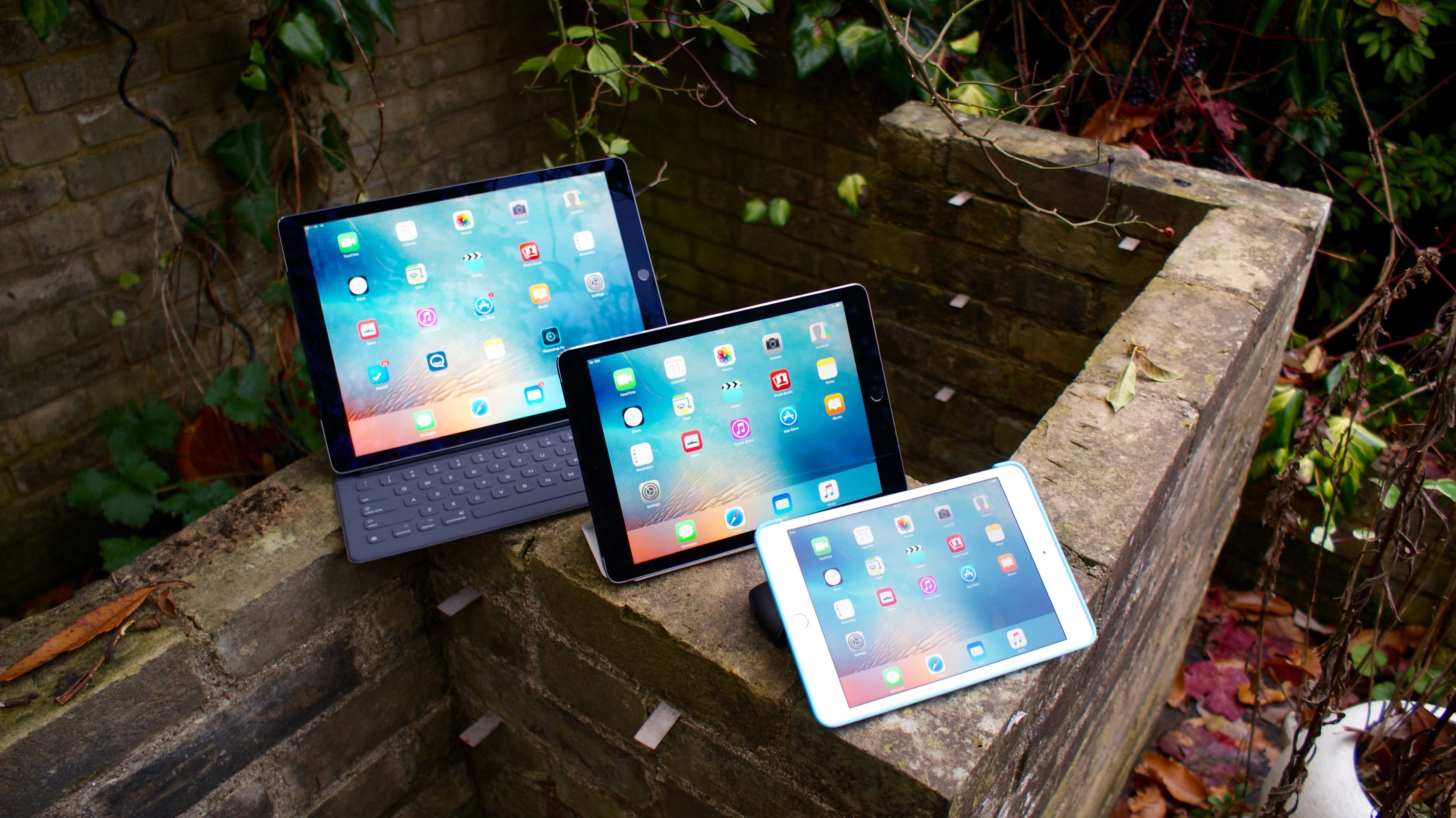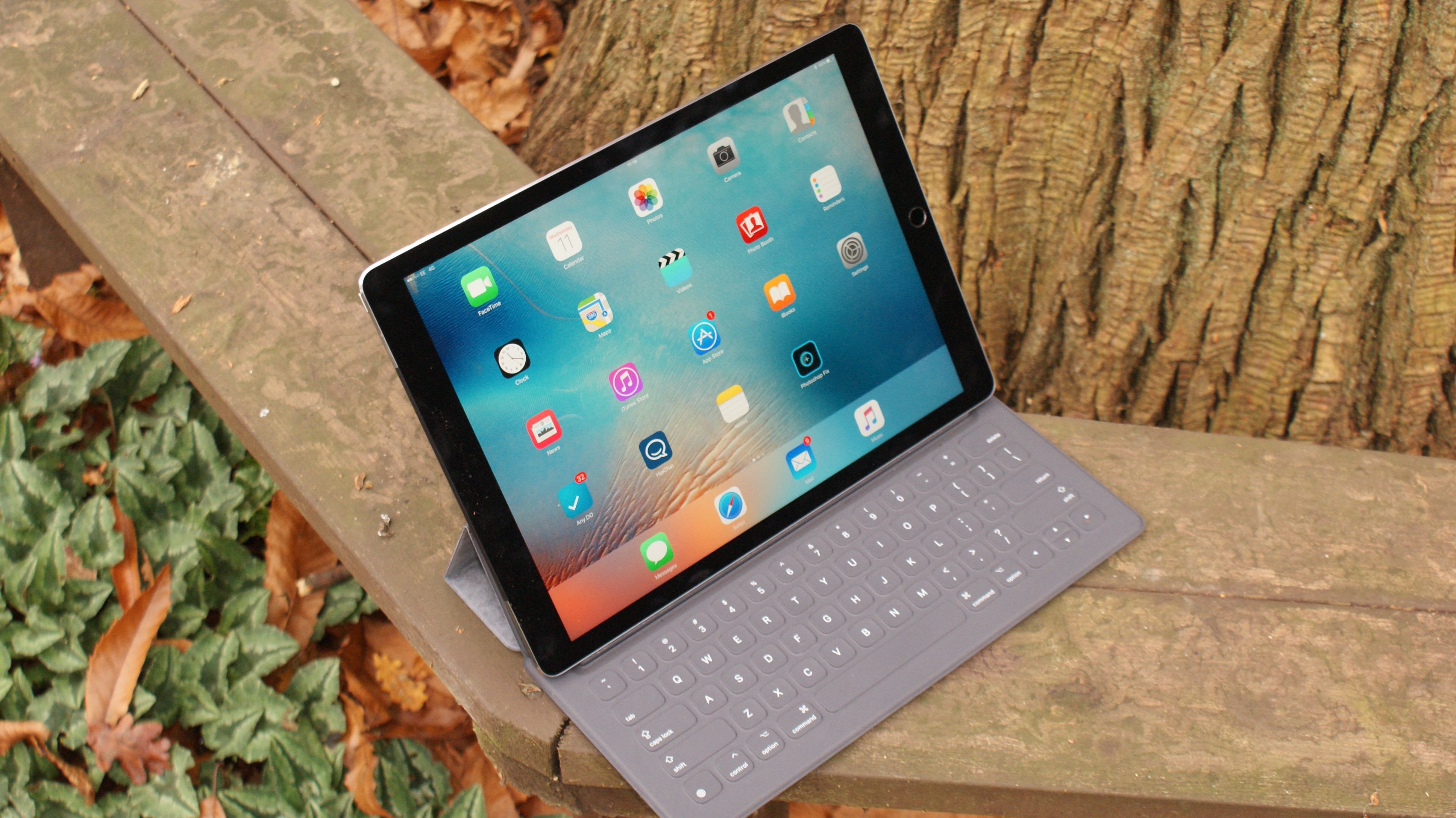Why you can trust TechRadar
The iPad Pro is a much bigger device than the average tablet – with a 12.9-inch display, it's always going to be a bit hefty.
The design language follows on strongly from the rest of the iPad family, with the same ceramic-like metal on the back, the curved edges and Touch ID home button above the Lightning port.
However, the bezels are narrowed around the screen, in part to help the aesthetics but also to make sure this tablet doesn't get too gargantuan. The other nice additions are the four speakers in the corners of the device, each machined out like the mono speaker on the iPhone range, but much more powerful.

In terms of weight, the 713g mass of the Pro isn't easy to hold in one hand. If you're thinking of using this for news, comics or magazines (and you should) you'll definitely not be able to hold it like a paperback for long.
That's not to say it's overly weighty, as the iPad Pro 12.9 is well balanced; you'll just need to hold it in two hands. The battery, screen and components can't be magically made lighter, and given that you're buying this because you want a larger iPad, the extra weight should be a trade-off worth making.
Apple's fingerprints are all over this device, with the same power button and volume combo in the upper right-hand corner, produced to feel nicely solid.

If we're talking fingerprints, this thing will have yours all over it as well. In fact, it's probably best to never commit a bad ol' crime and then scarper while leaving the iPad Pro behind, because not only will you look like a right fool in front of your underworld chums for having lost a valuable piece of consumer electronics, but you'll also have left a perfect record of every whorl, ridge and loop on your fingertips.
Screen
The LCD display on the iPad Pro is obviously the main selling point here, as the 12.9-inch expanse is excellent for viewing anything from movies to games to books to the web. It's got the same 264 pixels per inch pixel density that typifies Apple mobile devices to class this as a Retina display.
It's not got the same PPI as an iPhone 6S Plus, for example, but then again you're holding it further from your face, so the sharpness is relative.
The iPad Pro 12.9 display is really bright and colorful too, showing off movies and games with aplomb. It's hard to tell if it's using the same laminating process that made the iPad mini 4 and iPad Air 2's displays look so clear and bright, but in side by side comparisons there's very little difference between them.

The smart thing Apple has done here is add in a 2732 x 2048 resolution to the mix - this means you're sticking with the same 4:3 screen ratio of previous iPads (great for browsing the web as it's more expansive, but means black bars above and below movies) but when used in landscape mode has the same pixels vertically as the iPad Air held in portrait mode.
Why is this important? Well, when you're using it in Split Screen mode (running two apps side by side) they'll have the same resolution as an iPad Air, meaning two full, sharp apps in one place, and less coding for developers.

Gareth has been part of the consumer technology world in a career spanning three decades. He started life as a staff writer on the fledgling TechRadar, and has grew with the site (primarily as phones, tablets and wearables editor) until becoming Global Editor in Chief in 2018. Gareth has written over 4,000 articles for TechRadar, has contributed expert insight to a number of other publications, chaired panels on zeitgeist technologies, presented at the Gadget Show Live as well as representing the brand on TV and radio for multiple channels including Sky, BBC, ITV and Al-Jazeera. Passionate about fitness, he can bore anyone rigid about stress management, sleep tracking, heart rate variance as well as bemoaning something about the latest iPhone, Galaxy or OLED TV.
